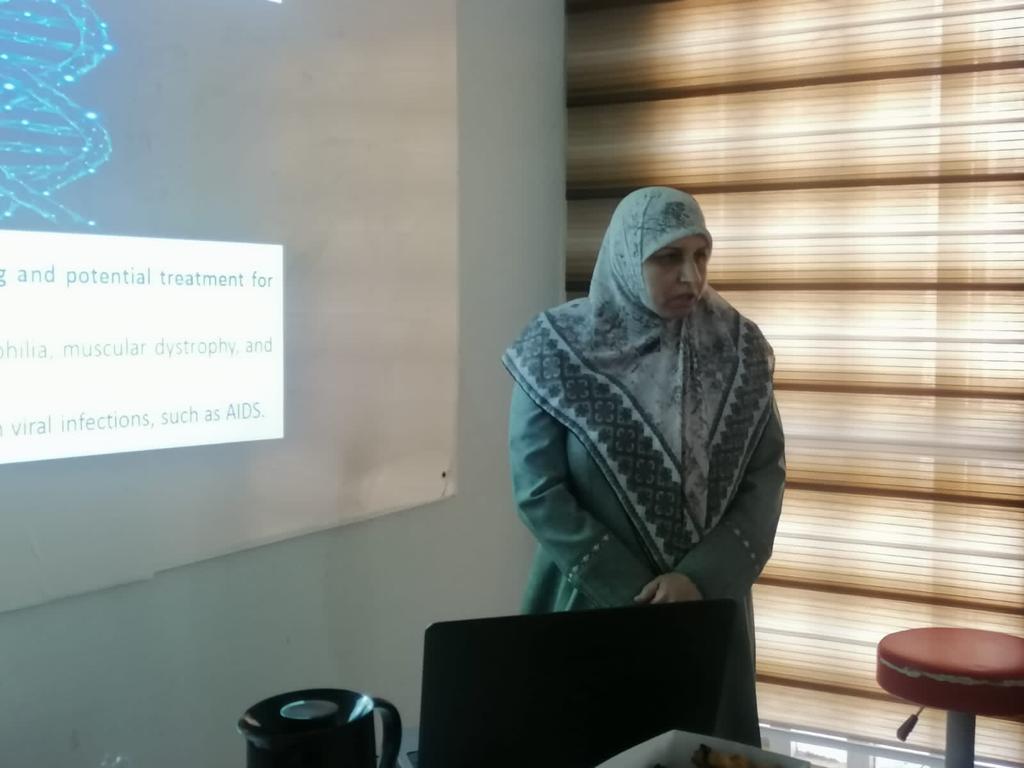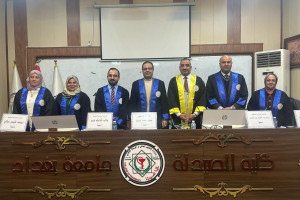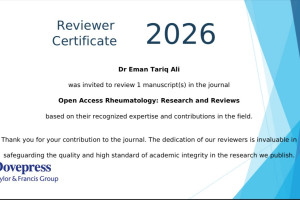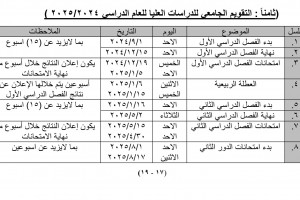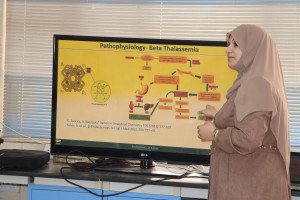
The Clinical Laboratory Sciences department at the College of Pharmacy at the University of Basrah organized a panel discussion entitled (Gene therapy is a promising technology from human genetic engineering techniques) with the participation of researchers and specialists.
The seminar included a lecture given by the Dr. Tamader Hamed Wadi, to introduce the nature and importance of the newly emerging gene therapy technology, which is the technique of inserting a healthy gene in the place of a damaged one, or inserting synthetic micro-ribonucleic acid to activate or inhibit one or several genes responsible for a particular disease to treat many inherited genetic diseases. Such as cystic fibrosis, genetic bleeding, sickle cell anemia, and others, as well as treatment of acquired genetic diseases such as cancer and some viral diseases such as AIDS.
There are two types of gene therapy: gene therapy that targets gametes and gene therapy that targets somatic cells. For moral and ethical considerations, the second type is currently permitted. Introducing the desired gene into somatic cells requires a challenging delivery system, and this system is either viral or non-viral (such as the use of nanoparticles), and both have advantages and disadvantages. The viral delivery system is commonly used in clinical trials for its high efficiency.
The lecture showed that gene transfer to somatic cells is carried out directly inside the living body or indirectly outside the living body using stem cells and then transferred to the living body after genetically modified. Recently, this technique has proven successful in treatment, as some drugs for gene therapy have been made and approved by the US Food and Drug Administration for commercial use.
